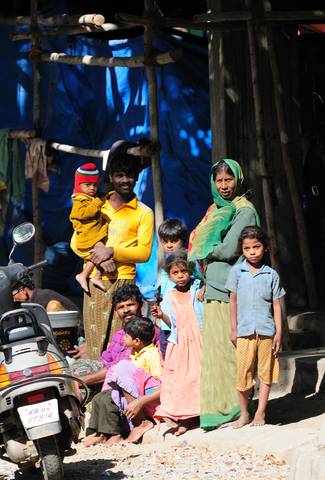
The preliminary study, presented at the conference of the Association for the Study of Religion, Economics and Culture in Washington, DC in mid-April, and attended by Religioscope, looked at the financial outcomes of Christian, Hindu, Muslim, and mixed faith families of Dalits, or “untouchables” in three slums in the city of Bangalore, India. Shah conducted interviews with 300 female clients of a microfinance company and found that they engaged in different approaches to saving and planning their finances for the future.
In studying the different kinds of loans that were taken out by the clients, Shah found that those families that tithe, or give 10 percent of their income, to their churches on a weekly or monthy basis were more likely to use loans to send their children to private schools. They were also more likely to use their loans to invest in business and in care for their children. Most of these Christians were Pentecostals. These Pentecostal Dalits were also more likely to fast than Muslims and fellow Christians. Shah noted that those who regularly tithed were not more financially well-off than the others in the study; in fact, they earned less and were less educated than their Hindu and non-tithing Christian counterparts.
Shah argued that tithing and fasting are “future-oriented” practices that induce the poor to start saving their money rather than spending it on immediate gratification with the idea that “one must spend today because there will be little to spend in the future.” She added that “Seeing all of one’s money as a loan from God fosters self-restraint and limits over consumption… Tithing means that there is hope in the future and that it is in God’s hands.” Shah concludes that both practices exercise “voluntary self-control” that results in improved family finances.
Richard Cimino